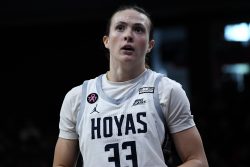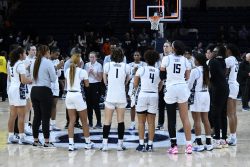The nuclear winter that almost came out of the NBA lockout could have been the most devastating occurrence in the league’s history. Just a short time ago, it was looking like the NBA was going to suffer a fate similar to that of the NHL in 2004, when the hockey league missed out on an entire season. Fortunately, basketball players and owners came to their senses at the very last minute, just in time to salvage a respectable 66-game season, just 16 games shorter than the league’s typical 82-game slate.
That’s not to say this was an ideal scenario—the concessions that the league and players eventually agreed upon were all out on the table for months. Though the sides eventually reached a deal, the NBA faces a larger issue: The continued, lingering drag from their small market franchises.
For the average fan, the response to a mundane Bucks-Pacers matchup is going to be a simple click of the remote to almost anything else on television. All major sports leagues have a number of these struggling franchises, but the NBA quite possibly suffers from the largest number of these teams. Struggling, unappealing franchises like those of Milwaukee and Indiana are the principal reason why the NBA’s problems are far from over.
With the lockout over, fans will focus, as they should, on the gripping storylines for this truncated season. The league is coming off arguably its best playoff performance since, coincidentally enough, the lockout-shortened 1999 season. For all we know, this could be the last hurrah for Kobe Bryant’s Lakers or Rajon Rondo’s Celtics in their current iterations.
Perhaps the average fan is sick of watching those teams garner all the headlines. That’s just fine, since there are plenty of other interesting narratives to follow. Will the Knicks’s new nucleus of Carmelo Anthony and Amare Stoudemire play even a lick of defense over the course of 66 games? Is this the year LeBron James breaks through and rides Dwyane Wade’s coattails to a ring? Or is one championship not enough time in the limelight for Dirk Nowitzki?
Though these are compelling storylines, they also highlight the heart of the problem. All of the franchises mentioned above have one thing in common: they’re large-market teams. That, for the most part, is why they are perennially successful. It is also why teams in smaller markets struggle to turn a profit, and why the lockout dragged on for as long as it did. Even though die-hard New York fans still came to Madison Square Garden to watch the Knicks during the dark days, when a grossly overweight and overpaid Eddy Curry played alongside past-their-primes Steve Francis and Stephon Marbury, people in Charlotte or Minnesota probably would not pay a dime to see such poor basketball.
Revenue sharing, in cases like the NBA’s, will not fix the problem. The disparity in resources between teams is too vast. A team like Kevin Durant’s Oklahoma City Thunder is thriving now, as the city is enthralled with its first professional sports franchise and because the team is a young, exciting contender. The same scenario arose for the Sacramento Kings in their heyday, where they came up just short against the Lakers on multiple occasions in the early 2000s. Now? The Kings are a pitiful franchise, Arco Arena is often devoid of life, and the Maloof brothers have been plotting ways to move their team to Las Vegas to somehow salvage their investment. Once Durant’s days in OKC are over, it’s hard not to imagine a similarly dire fate for the Thunder.
The New Orleans Hornets and Orlando Magic face similar predicaments, as they may flounder amid trade rumors about their superstars, Chris Paul and Dwight Howard. Like LeBron James and Chris Bosh before them, these players yearn for the greener pastures and endorsement paychecks of big markets. For a Minnesota or Milwaukee team to compete, it needs a selfless superstar like Durant to commit for the long haul.
The 2011 lockout will have few lasting effects on the NBA. The league has survived one before, as well as plenty of turmoil since then, like the Tim Donaghy referee game-fixing scandal of 2007. These events, however, were one-time occurrences that the league did and will recover from. Nevertheless, the adverse drag that these small-market teams have on the long-term health of the league needs to be stopped. Whether it occurs through relocation or full-on contraction, Commissioner David Stern and company need to find a permanent solution. Otherwise, Stern won’t be able to avoid the nuclear winter that comes in 2021, the next time these two sides have to hash out a deal.




